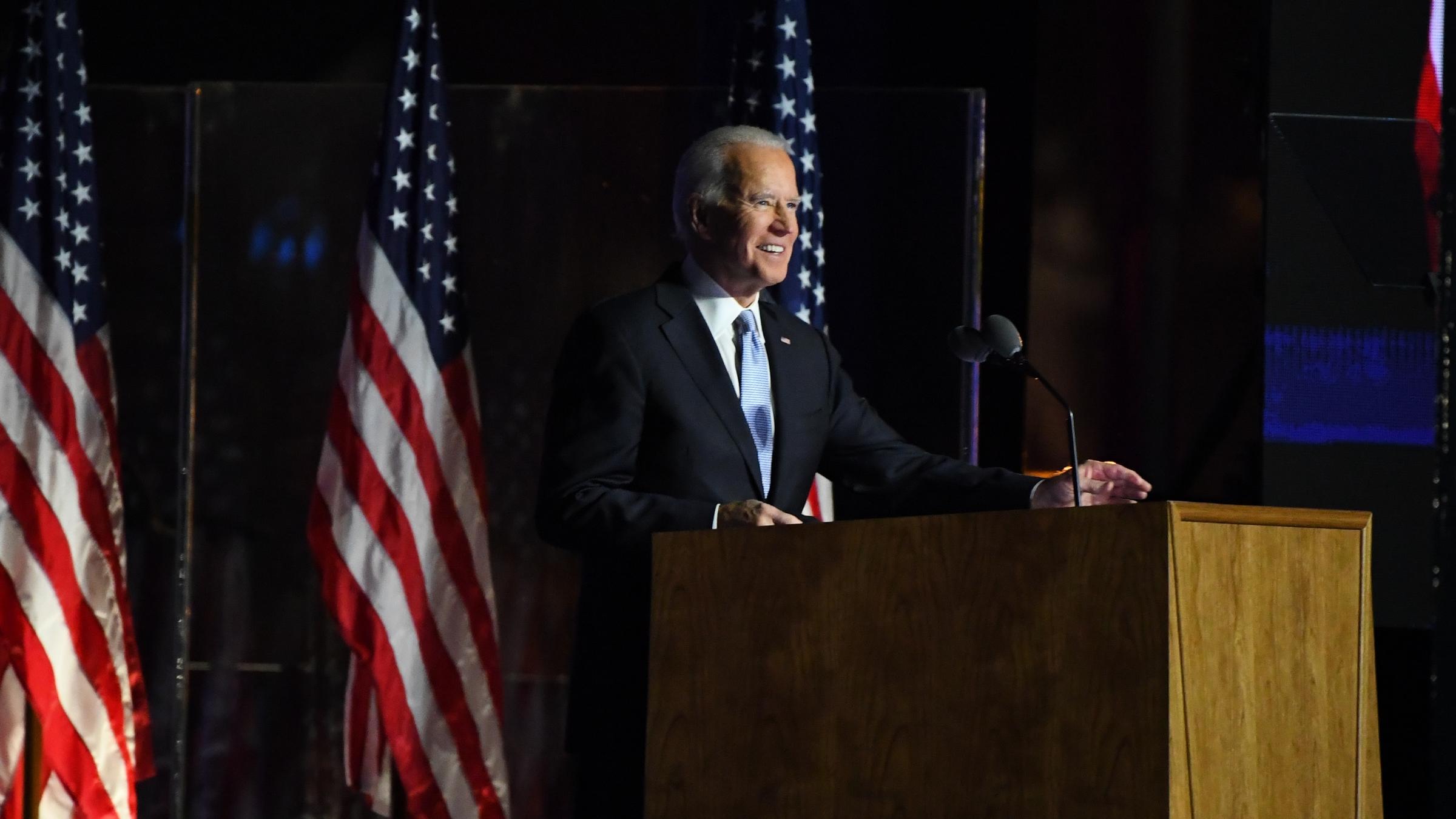
- Details
- By Levi Rickert
WILMINGTON, Del. — Both President-elect Joe Biden and Vice President-elect Kamala Harris in their victory speeches mentioned Native Americans on this historic evening. The speeches came eight hours after their victories to the highest offices of the United States were declared. Biden was elected the 46th president of the United States, who denied a second term as president to Donald Trump.
Biden, 77, the oldest man man ever elected president of the United States, talked about the broad support the Biden-Harris ticker received from Americans throughout the country from the cities, suburbs and rural areas.
"I am proud of the coalition we put together, the broadest and most diverse in history. Democrats, Republicans and Independents. Progressives, moderates and conservatives. Young and old. White. Latino. Asian. Native American," Biden said.
Harris, the first woman ever elected to vice president, spoke about how her mother who came to the United States when she was only 19-years-old would have had a hard time imagining her daughter become vice president.
"But she believed so deeply in an America where a moment like this is possible. So, I'm thinking about her and about the generations of women — Black Women.Asian, White, Latina, and Native American women throughout our nation's history who have paved the way for this moment tonight," Harris said.
“While I might be the first woman in this office, I won’t be the last,” Harris said, “because every little girl watching tonight sees that this is a country of possibilities.”
Showing vigor, Biden jogged outside to a stage readied for the victory speeches outside the Chase Center inWilmington, Del.
“Folks, the people of this nation have spoken. They’ve delivered us a clear victory, a convincing victory, a victory for we, the people,” Biden said.
"I sought this office to restore the soul of America, to rebuild the backbone of this nation," Biden said. "And to make America respected around the world again and to unite us here at home. It is the honor of my lifetime that so many millions of Americans have voted for that vision. And now, the work of making that vision real — it's a task, the task, of our times."
"I've long talked about the battle for the soul of America," he said. "It's time for our better angels to prevail."
Biden attempted to assure the nation, though he is proud to be a Democrat, he would govern as an American president.
“I understand the disappointment tonight. I’ve lost a couple of times myself,” Biden said, nodding to his two previous failed presidential runs. “Now let’s give each other a chance. It’s time to put away the harsh rhetoric, lower the temperature, see each other again. Listen to each other again. And to make progress, we have to stop treating our opponents as our enemies. They are not our enemies. They’re Americans.”
President Trump reportedly watched the victory speeches from the White House where he will leave on Jan. 20, 2021. As of Saturday evening, he became the only president in U.S. history to refuse the concede his defeat. He vowed to fight the election in court. Most legal scholars said, there are no merits to legal arguments the Trump campaign have filed this past week. Most have been thrown out as being frivilous.
Biden never mentioned Trump's name on Saturday night.
More Stories Like This
Native News Weekly (August 25, 2024): D.C. BriefsNavajo Nation Mourns the Passing of Former Vice President Rex Lee Jim
Deb Haaland Earns Endorsement From Communications Workers of America Local 7076
University Soccer Standout Leads by Example
Two Native Americans Named to Democratic Congressional Campaign Committee's“Red to Blue” Program
Help us defend tribal sovereignty.
At Native News Online, our mission is rooted in telling the stories that strengthen sovereignty and uplift Indigenous voices — not just at year’s end, but every single day.
Because of your generosity last year, we were able to keep our reporters on the ground in tribal communities, at national gatherings and in the halls of Congress — covering the issues that matter most to Indian Country: sovereignty, culture, education, health and economic opportunity.
That support sustained us through a tough year in 2025. Now, as we look to the year ahead, we need your help right now to ensure warrior journalism remains strong — reporting that defends tribal sovereignty, amplifies Native truth, and holds power accountable.
 The stakes couldn't be higher. Your support keeps Native voices heard, Native stories told and Native sovereignty defended.
The stakes couldn't be higher. Your support keeps Native voices heard, Native stories told and Native sovereignty defended.
Stand with Warrior Journalism today.
Levi Rickert (Potawatomi), Editor & Publisher

